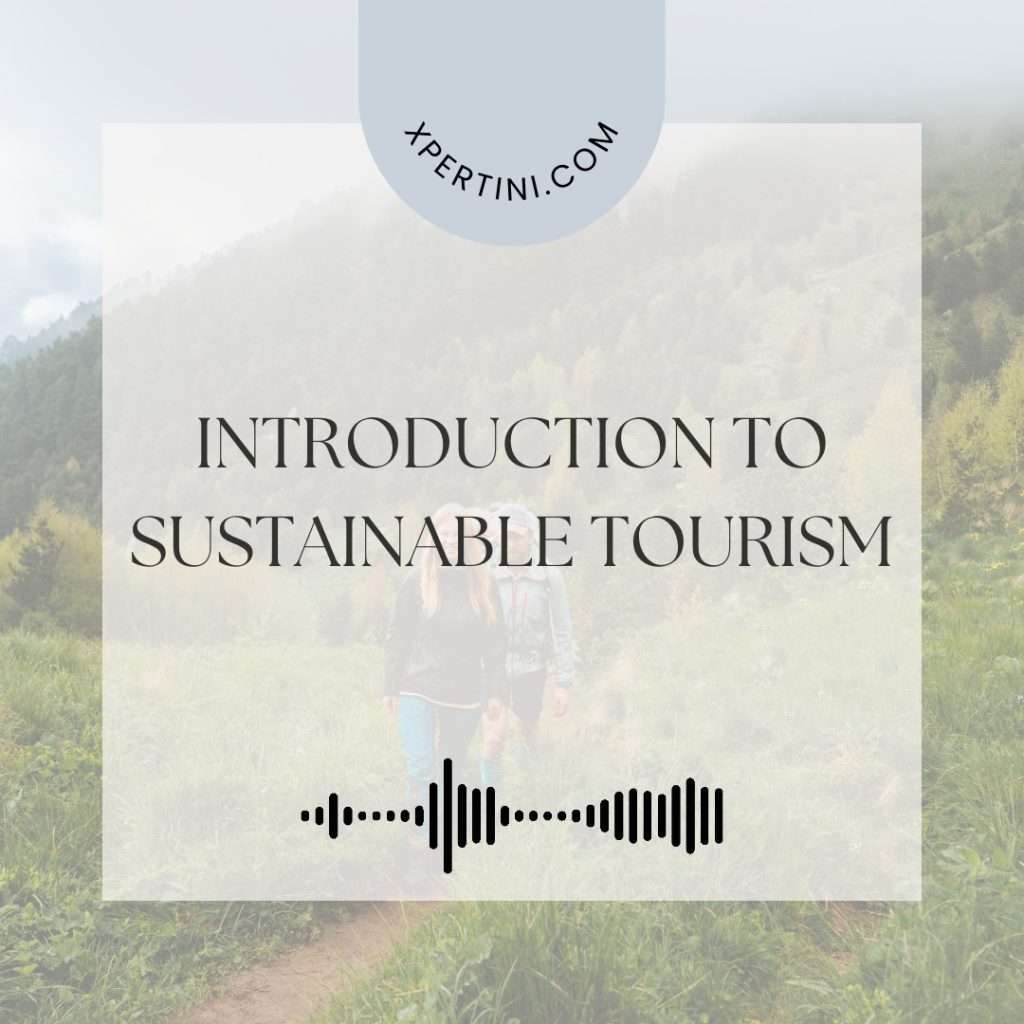Introduction to Sustainable Tourism
Course Summary
In this comprehensive course on Sustainable Tourism, we explore the balance between economic prosperity, cultural preservation, and environmental stewardship within the tourism industry. Through a series of engaging lessons, learners gain a profound understanding of the principles, challenges, and opportunities inherent in sustainable tourism practices.
The course begins by laying a solid foundation, elucidating the fundamental concepts and principles of sustainable tourism. Learners delve into the multifaceted nature of sustainability, understanding its holistic approach encompassing environmental conservation, socio-cultural sensitivity, and economic viability. They explore the significance of responsible travel practices in mitigating the adverse impacts of tourism on natural ecosystems and local communities.
As the course progresses, learners begin on a journey through the diverse dimensions of sustainable tourism management. They examine the role of stakeholders, including local communities, governments, businesses, and NGOs, in shaping sustainable tourism initiatives. Furthermore, learners explore emerging trends and best practices in sustainable tourism, discovering innovative solutions to address pressing issues such as overtourism and climate change. They analyze successful initiatives from around the world, extracting valuable lessons and strategies for promoting sustainability in diverse tourism contexts.
One of the highlights of the course is the exploration of career opportunities in sustainable tourism. Learners gain insights into various job roles, from ecotourism managers to sustainable tourism consultants, and acquire essential skills and qualifications required for success in these fields.
By the end of the course, learners emerge equipped with the knowledge, skills, and insights needed to contribute meaningfully to the advancement of sustainable tourism practices. Armed with a holistic understanding of sustainability principles and practical tools for implementation, they are prepared to begin on a rewarding career journey in the and ever-evolving field of sustainable tourism.
Course Overview
This course offers a comprehensive understanding of sustainable tourism, emphasizing its significance in mitigating environmental impacts, benefiting local communities, and fostering economic development. Participants will explore sustainable tourism principles, practices, and strategies essential for responsible tourism management and development.
Course Objectives
- Define sustainable tourism and its principles.
- Analyze the environmental, socio-cultural, and economic impacts of tourism.
- Explore strategies for sustainable tourism development.
- Develop skills to plan, manage, and promote sustainable tourism initiatives.
- Evaluate sustainability criteria to assess tourism activities and destinations.
- Recognize stakeholder involvement in sustainable tourism management.
- Discuss current trends and challenges in sustainable tourism.
- Explore career opportunities in the field of sustainable tourism.
Course Outcomes
- Define sustainable tourism and its principles.
- Analyze the environmental impacts of tourism and propose sustainable solutions.
- Assess the socio-cultural impacts of tourism on local communities.
- Evaluate economic benefits and challenges associated with sustainable tourism development.
- Design sustainable tourism initiatives considering stakeholder involvement.
- Apply sustainability criteria to assess the sustainability of tourism activities and destinations.
- Discuss current trends and challenges in the field of sustainable tourism.
- Develop skills to plan, manage, and promote sustainable tourism initiatives.
- Explore career opportunities in the sustainable tourism industry.
Course Audience
- Individuals interested in pursuing a career in sustainable tourism
- Tourism professionals seeking to enhance their knowledge and skills in sustainability
- Students studying tourism, environmental science, or related fields
- Professionals working in government agencies or non-profit organizations involved in tourism management and development

